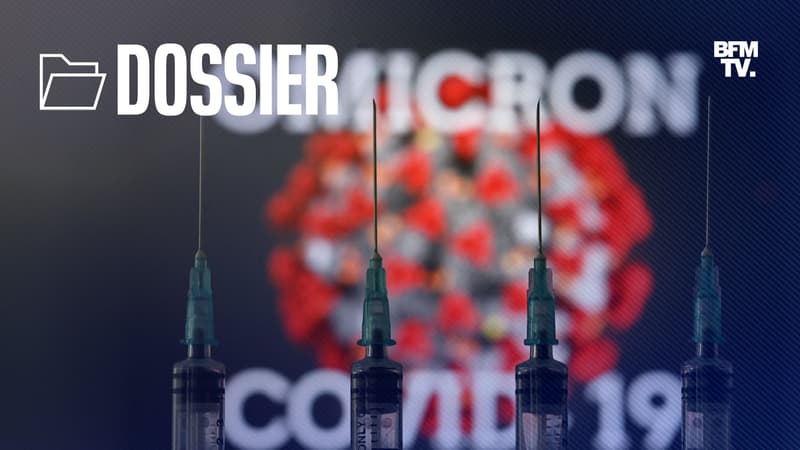The Omicron variant is a new version of SARS-CoV-2 (the coronavirus that causes Covid-19) that was identified in late November in Botswana, then in South Africa. Its particularity is its high number of mutations compared to the initial strain of the virus, known as Wuhan, and previous variants, such as Delta, which has largely dominated global contamination since the summer of 2021. We do not know precisely where and how Omicron appeared. A hypothesis seduces many scientists: the virus would have silently mutated in the body of an immunosuppressed person, a process that would have taken several months to give rise to a clearly different version of the initial strain. This new variant is obviously very contagious. It is spreading “at a rate that we have never seen with any other variant” and “it is probably found in most countries,” Tedros Adhanom Ghebreyesus, director general of the World Health Organization (WHO) warned in mid-December. . South Africa and its neighbors have seen a spike in covid cases with the arrival of Omicron, which has also seen a meteoric rise in several European countries. This is the case in Denmark and the United Kingdom. More broadly, Omicron could be dominant in Europe by mid-January, according to European Commission President Ursula von der Leyen. Will it permanently replace Delta? It’s a strong probability but the scientists evoke other possibilities: that Omicron supplanted its predecessor for a time but ends up giving way to it again or that the two variants coexist as is the case with certain strains of the seasonal flu virus. Reason for concern: Omicron mutations are likely to significantly reduce antibody immunity against the virus. Consequence: you can probably reinfect people previously infected with the virus and contaminate a large number of vaccinated people. Several recent laboratory studies support this last hypothesis. They show that the level of antibodies against Omicron collapses in people vaccinated with Pfizer/BioNTech, Moderna and even more AstraZeneca or Sinovac. It is true that a booster dose appears to significantly increase antibody immunity, as announced by Pfizer and BioNTech in particular, but we are a long way from knowing how long this effect lasts. However, this does not mean that the vaccines lose all their effectiveness. Because antibodies are only one component of the immune response, which also involves cells called T lymphocytes. More difficult to measure, this “cellular immunity” plays a very important role, especially against severe forms of the disease. In fact, a study published in South Africa suggests that the Pfizer/BioNTech vaccine remains quite effective against severe forms generated by Omicron, even after the first two doses.
Source: BFM TV


